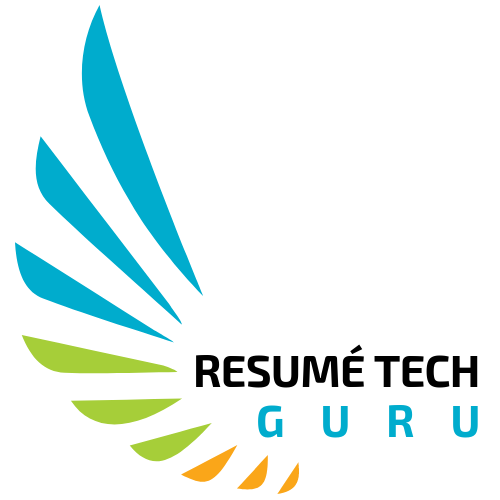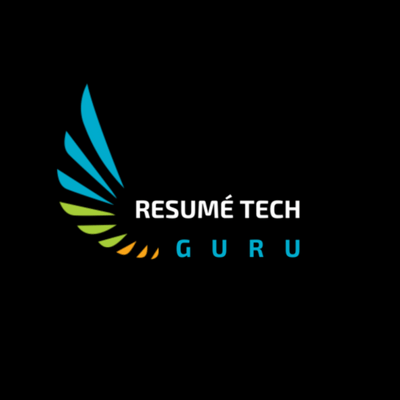Last Fall, I was a keynote speaker at the Women in Tech Network Career Fair & Summit and discussed interview anxiety.
In my session “Hit the Easy Button: 5 Steps for Obtaining a Job Offer,” I shared highlights about how to:
- own & tell your story with a personal brand
- uncover your LinkedIn All-Star profile
- understand how your resumé can “beat the bots”
- ace your job interview with the help of AI
- embrace networking
Today, I’ll dive deep into #4 on tech-related job interviews.
Interview Flops from Recruiter Perspective
Did you ever complete a job interview and feel like you crushed it yet didn’t receive a callback? Or, on the flip side, thought of just the right answer to a question after the interview and scolded yourself for not being timely in your response?
I’ve identified 4 areas to increase your chances of impressing the recruiter and hiring manager.
- Lack of Behavioral Competencies: A CareerBuilder study uncovered that 70% of employers emphasized behavioral competencies over hard skills. Acumen related to AI and machine learning is table stakes for those seeking tech roles, but you need to demonstrate soft skills, including cross-functional team leadership, problem-solving aptitude, public speaking capability, and adaptability. The best way to show off your behavioral competencies during an interview is rehearsing 1-minute stories. Your response within an interviewing environment is more impactful if you use the CAR technique; provide the Context, Actions, and Results you delivered in a job role. Use the free online LinkedIn Interviewing Prep tool, which offers instant, AI-powered feedback on the delivery of your answer when you practice and record a video from the convenience of your computer screen.
- Inadequate Technical Skills: LinkedIn’s Global Talent Trends report indicated that 54% of HR professionals use skill assessments as part of their hiring process. As a tech executive, you won’t likely be taking a technical skills test. However, you certainly will be questioned about your knowledge of industry trends and your team’s tool usage for project management, infrastructure and DevOps, security and compliance, cloud management and orchestration, data analytics, and collaboration. It’s time once again to practice CAR interviewing stories about positive and negative use cases.
- Poor Interview Preparation: The Society of Human Resource Management survey revealed that over three-quarters of organizations faced recruitment difficulties due to candidates being unprepared for interviews. Winging it as an interviewing candidate doesn’t work; it’s imperative that you research not only the company but the people you will be working with. For a 15-minute recruiter interview, I recommend to my clients to prep by creating a cheat sheet with 4 quadrants that address your personal connection to the hiring company, the company’s accomplishments, your fit into the role and environment with what you can deliver, and 5 questions that you need clarification on related to culture or success metrics. In February, I suggested to a CTO to take this interview prep 1-step further for an in-person interview with the hiring company’s executive team by creating a booklet for the four components and handing out color copies. Besides the fact that she was well-qualified for the job, this extra preparation effort paid huge dividends, resulting in a job offer.
- Over-Reliance on AI Screening: A Gartner report predicted that 58% of organizations would use AI in their HR processes by 2024. Candidates often fail to pass initial AI screenings due to keyword mismatches or lack of optimization in their resumés. If you’re a tech executive, recruiters will pass over your candidacy if your LinkedIn profile lacks key hard and soft skills. You can fix this profile gap using an ATS (applicant tracking system) tool. I pay for Jobscan.co, which allows me to take a company’s job description and analyze it against my client’s LinkedIn profile and resumé. It addresses hard and soft skill gaps and aids in format optimization.
Interview Anxiety
You’re not alone if you dread job interviews.
Although there’s no psychological term for interview anxiety, it’s related to judgment fears by the recruiter or hiring panel. Some of my executive clients suffer from interview performance anxiety even when they are role-playing with me.
Part of the issue is that most people don’t interview since they stay in a role for a number of years. In my tech career, I was typically tapped on the shoulder for a job, so I knew the hiring manager, or I was identified as one of the top candidates. Just by showing up, I had an edge over other candidates.
What do you do if you don’t have an edge?
As an avid fan of standup comics, such as Nate Bargatze, I’ve observed that we can learn from their on-stage performances to overcome interview anxiety.
It boils down to the 3 components of compelling content, engaging delivery, and, most importantly, plenty of storytelling practice. Storytelling is crucial since it builds rapport with the interviewers, demonstrates your skills, showcases critical thinking, and makes you memorable.
What do I mean by content and delivery? It’s related to a number of items, including your:
- pace and pitch
- filler and hedging words
- pronunciation
- grammar and word inclusiveness
- dynamism and persuasiveness
- body language
There are plenty of paid and free resources to improve your speaking skills. On the paid side of the spectrum, you can:
- join a local Toastmasters International group
- hire a speaking or interviewing coach
- seek out a speech therapist; I hired one to overcome a foreign-language speech impediment
If you want to test the waters without monetary investment, you can:
- sign up for Coursera’s “Dynamic Public Speaking” taught by Dr. Matt McGarrity and offered by The University of Washington with a 7-day free trial
- use your Microsoft PowerPoint speaker coach, which is available on all platforms, including web, Windows, Mac, iOS, and Android
- study great public speakers on Ted Talks, LinkedIn, YouTube, or streaming news channels
AI Tools to the Interview Anxiety Rescue
Once you’ve identified the hard and soft skill requirements for your next career role and developed your interviewing responses, it’s time to practice your storytelling using AI-based apps.
- LinkedIn Interview Prep Tool: You can access this online app feature even if you don’t have a Premium LinkedIn account. It’s free of charge.
- From the convenience of your computer, you get instant, AI-powered feedback on the delivery of your answer when you practice and record a video.
- There are 26 interview prep questions ranging from “Tell me about yourself” to “Tell me about a time you created a goal and achieved it.”
- Head on over to www.linkedin.com/interview-prep/ to start your practice sessions with the LinkedIn-recommended “SHE” approach of being Succinct, Honest, and Engaging.
- Google Interview Warmup: This is another free online tool that asks targeted questions based on your field of practice, including cyber security, data analytics, digital marketing and e-commerce, IT support, project management, and UX design.
- By clicking on your “field” scope, you can instantly practice key questions using either your microphone or keyboard, gain insight into your answers, and become more comfortable interviewing.
- Five questions will pop up, categorized as background, situational, and technical. The AI analysis will point out job-related terms and the most used words and provide you with talking points.
- Talking points are broken down by experience, skills, lessons learned, goals, and interests.
- Access this free app at https://grow.google/certificates/interview-warmup/
- Yoodli AI Communications Coach: Improve communication skills with a private, real-time, judgment-free role-play online coaching app. One of the Yoodli founders reached out to me before the app became a paid subscriber model. I used the app to practice my conference presentations and advised my tech exec clients to sign up for the app for job interviews.
- I appreciate the dashboard that tracks your practice improvement based on:
- Authority: filler words, weak words, repetition
- Presence: eye contact, centering, pacing, conciseness
- Listening: talk time, monologues, questions asked
- Usage: comments given, comments received, shared
- You can kick the tires of this subscription app with 5 free practice sessions by accessing https://app.yoodli.ai/onboarding.
- I appreciate the dashboard that tracks your practice improvement based on:
Go Practice to Overcome Interview Anxiety!
Let’s face it: most of us are anxious before a job interview. I was anxiety-ridden at times, but the good news is that with interview content preparation and practice, you can at least minimize the anxiety.
Now it’s time to analyze the job skills required for your next career adventure, develop your job highlight stories, and start interviewing.
Best to you in your career adventure.


